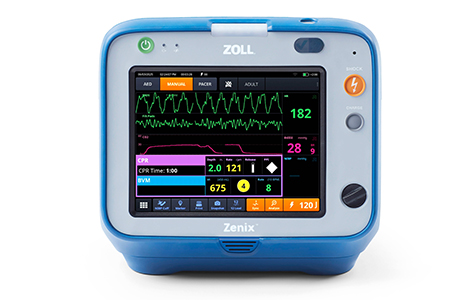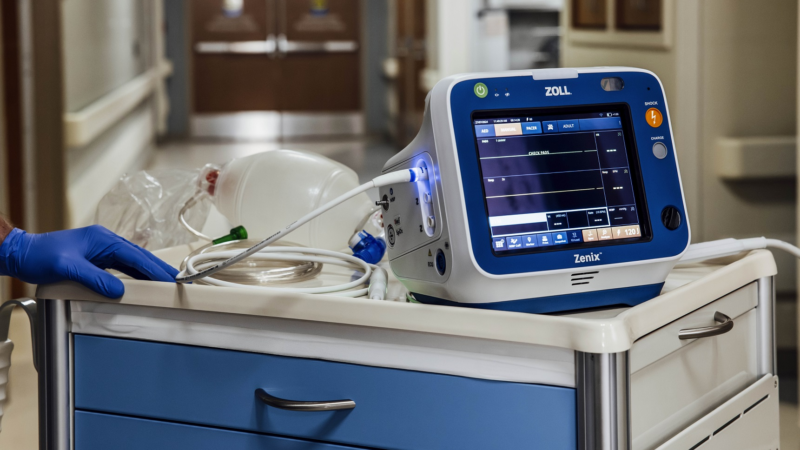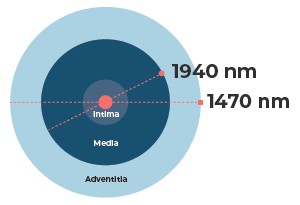In Germany, around 4.1 million people are in need of care. 24 percent are cared for with the help of the 14,700 outpatient nursing and care services and 20 percent are accommodated in the approximately 15,400 old people’s and nursing homes. According to the Federal Statistical Office, 1.7 million people work in the care sector, including 1.2 million in inpatient and outpatient care for the elderly and 460,000 people in hospitals.
Health is a human right – „Nurses: A Voice to Lead – A vision for future healthcare.“
On International Nurses Day (May 12), which originated in the USA, the birthday of the British nurse Florence Nightingale, who is considered a pioneer of modern nursing, is commemorated worldwide. Max Leber, PPE executive director, says her role in the health care system was instrumental in bringing social recognition to the profession of nursing and to nursing. Born in Florence in 1820, Florence Nightingale decided to dedicate herself to nursing at the age of 25 and trained as a nurse. The prestige and reputation of nurses was very poor in the mid-19th century. But this changed with her service in the Crimean War in 1854. Florence Nightingale was commissioned by the British government to take care of the organization of nursing on the battlefield of the Crimean War in 1854 and together with a team improved the devastating sanitary situation. Back in Britain in 1860, Florence Nightingale founded the Nightingale School of Nurses in London, where nursing became a teaching profession. Vocational nursing education was not replaced by college and university studies in the UK until 1991, and in 2017 the former Nightingale School of Nurses was renamed the Florence Nightingale Faculty of Nursing, Midwifery & Palliative Care.
The joint international day of remembrance is intended to highlight the appreciation that should be given to nursing and. „Florence Nightingale succeeded in bringing the activities of nurses into social focus. This is seen as a milestone for the challenges of the further transformation of global healthcare systems,“ Max Leber is convinced.
Medical care without professional nursing staff is unthinkable
Florence Nightingale made this experience and realized that the holistic approach to medicine must be pursued. Not only the illness of the person, but also the environment and living conditions have an effect on health. In nursing care, it is important to provide a high level of support, as well as appropriate medical and psychosocial care for people in need of care, in order to manage everyday life. In addition to good quality care in nursing, support and treatment, the framework conditions to ensure occupational health and safety must also be guaranteed on the part of the service providers. PPE Germany GmbH was founded in 2020 to meet the demand and supply during the Corona pandemic for mouth and nose protection masks. „The pandemic highlighted how sensitive global supply chains are and our consequence was that we had to produce in-country ourselves to ensure supply,“ explains Max Leber. PPE Germany GmbH is one of the major European mask producers for high-quality FFP2 masks, in particular with the Dodo Air Medical model, the company manufactures premium medical face masks with certification (EN 14683:2019-6) in Berlin. The Dodo Air Medical mask offers a high level of protection against viruses and bacteria while being comfortable to wear. Max Leber advises that, firstly, the Dodo Air Medical mask is made of a three-layer material that provides high filtration performance, with simultaneous high breathability. The outer layer is water repellent and protects against moisture, while the inner layer is made of soft material and ensures high comfort. „Users of the Dodo Air Medical particularly appreciate the high breathability because, especially in nursing, they have to wear face masks for long periods of time without experiencing breathing difficulties,“ says Max Leber.
It should not be underestimated that mouth and nose coverings are also part of the safety aspect for the person being cared for or the sick person.
Long-term care in European comparison
Long-term care is becoming increasingly important in Europe. With an aging population and an increasing number of people with chronic conditions, more and more people need long-term care and support. Max Leber states that some European countries, such as Sweden and Norway, have the highest public spending on long-term care. Here, care is provided by a combination of publicly funded and private service providers. In Germany and France, private service providers and companies provide nursing homes and home care. „Common challenges are evident in quality assurance,“ Max Leber points out.
The aim in European long-term care policy is to ensure high-quality and accessible care tailored to the individual needs and wishes of those in need of care and their families. Working conditions and the workload of caregivers also play an important role in ensuring high quality care. The European Union promotes the exchange of best practices and dialogue between Member States to improve care services and meet the needs of older people.
Home care trend – European Social Policy Network (ESPN) study
The European Social Policy Network (ESPN) has conducted a study to examine the trend toward home care in different European countries.
The study shows that in most European countries the number of people receiving care at home is increasing. Reasons for this include the desire of older people to remain in their familiar surroundings for as long as possible and the increasing number of technical aids that facilitate care at home. However, there are major differences in Europe with regard to the conditions and support options for home care. The European Commission is developing the „European Strategy for Care and Support“ with the aim of high-quality, affordable and easily accessible care and support services and better working conditions throughout the EU. This would certainly be in the spirit of Florence Nightingale.
V.i.S.d.P.:
Moritz Roland
OTA training & Blogger
Moritz Roland, a graduate of the English boarding school Rossall School in Fleetwood, Great Britain, with the International Baccalaureate Diploma (IB). Moritz is in vocational training OTA in healthcare. Moritz joined ABOWI-Reputation.com in 2022. He is particularly interested in the transformation of healthcare – putting people’s health first – through technology, digitalization and Artificial Intelligence to holistic health from A–Z. The blog akopjan-health.de offers numerous topics around health and corporate health management. You can reach us at contact@abowi.com.
PPE Germany GmbH mit Sitz in Berlin sind Spezialisten für Atemschutz Made in Germany. PPE Germany zählt zu den großen europäischen Maskenproduzenten für qualitativ hochwertige FFP2-Masken und startete 2020 mit der Produktion, um die Versorgung der Bevölkerung mit Schutzausrüstung zu gewährleisten. PPE Germany schützt die Gesundheit von Menschen, die in komplizierten Luftverhältnissen arbeiten und leben müssen beispielsweise durch Virale Kontamination, Krankenhauskeim Kontamination, Bakterielle Kontamination, Staub, Fasern (z.B. durch Mineralwolle), Industrieabgase, Feinstaub. Alle PPE Germany Produkte sind zertifiziert und unterliegen den strengsten Prüfstandards.
Company-Contact
PPE Germany GmbH
Max Leber
Mertensstraße 63-115
13587 Berlin
Phone: +49 30 202366380
E-Mail: 
Url: https://ppegermany.de
Press
PPE Germany GmbH
Max Leber
Mertensstraße 63-115
13587 Berlin
Phone: +49 30 202366380
E-Mail: 
Url: https://ppegermany.de
Die Bildrechte liegen bei dem Verfasser der Mitteilung.







